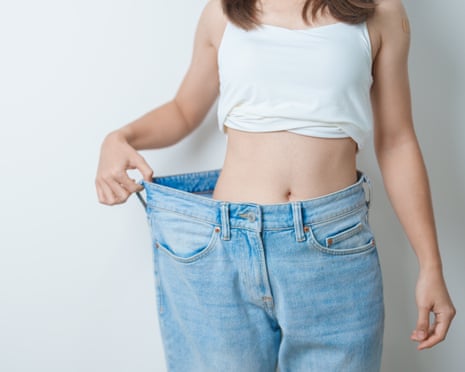Have you ever wondered why losing weight feels easier for some people and harder for others? Especially when it comes to men and women, the difference isn’t just in the numbers on the scale.
Your body works in unique ways, and understanding these differences can make a huge impact on your weight loss journey. If you want to know why what works for him might not work for you, keep reading. Unlocking these secrets could be the key to finally reaching your goals.
Biological Differences Affecting Weight Loss
Weight loss can differ between men and women due to biology. These differences affect how the body burns fat and builds muscle.
Understanding these biological factors helps explain why men and women may see different results from the same diet or exercise plan.
Hormonal Influences
Hormones play a big role in weight loss for both men and women. Women have higher levels of estrogen and progesterone, which affect fat storage.
Men have more testosterone, which helps build muscle and burn fat faster. Hormonal changes during menstrual cycles or menopause can also impact women’s weight loss.
- Estrogen promotes fat storage around hips and thighs in women
- Testosterone boosts muscle growth in men
- Hormone shifts can slow weight loss in women at times
Metabolic Rate Variations
Metabolic rate is how fast the body burns calories. Men usually have a higher metabolic rate than women. This means men burn more calories at rest.
This difference happens because men often have more muscle mass. Muscle burns more calories than fat, even when resting.
- Men’s higher metabolism helps them lose weight faster
- Women burn fewer calories, making weight loss slower
- Muscle mass directly affects calorie burning rate
Body Composition Differences
Men and women have different body compositions. Men tend to have more lean muscle, while women have a higher percentage of body fat.
These differences affect how weight loss shows on the body. Men often lose fat faster and see muscle tone sooner.
- Women naturally carry more fat for reproductive health
- Men’s muscle mass supports quicker fat loss
- Body fat distribution varies between sexes

Dietary Needs And Preferences
Men and women often have different dietary needs. These differences affect how they lose weight. Understanding these can help create better diets.
Body size, hormones, and metabolism change how men and women process food. This means their diets should match their unique needs.
Caloric Requirements
Men usually need more calories than women. This is because men tend to have more muscle mass. Muscle burns more calories than fat.
Women need fewer calories but may require extra nutrients for hormonal balance. Their needs can also change with age or pregnancy.
- Men: Higher calorie intake due to muscle mass
- Women: Lower calorie needs, focus on nutrient-rich foods
- Calorie needs vary by age and activity level
Macronutrient Metabolism
Men and women break down proteins, fats, and carbs differently. Men often burn fat faster during exercise. Women may use carbs more efficiently.
Women may need more iron and calcium in their diet. Men might benefit from more protein to support muscle health.
- Men: Higher protein needs for muscle repair
- Women: More focus on iron and calcium intake
- Both need balanced carbs, fats, and proteins
Eating Habits And Patterns
Men often eat larger meals less frequently. Women may prefer smaller, more frequent meals. These habits affect energy and hunger levels.
Women sometimes have stronger cravings tied to hormonal changes. Men usually have steadier hunger patterns throughout the day.
- Men: Larger meals, fewer snacks
- Women: Smaller meals, frequent snacks
- Hormones influence women’s cravings and hunger
Exercise Impact On Men And Women
Exercise helps both men and women lose weight and stay healthy. Their bodies react in different ways to workouts. This affects how they gain muscle and burn fat.
Understanding these differences can help create better fitness plans for each gender. Let’s look at how exercise impacts men and women.
Muscle Mass And Strength Training
Men generally have more muscle mass than women. This is due to higher testosterone levels. Strength training helps both build muscle but results vary.
Women may gain muscle slower but still get stronger and leaner. Men often see faster muscle growth and strength gains.
- Men have more natural muscle mass
- Women gain strength but less muscle size
- Both benefit from regular strength training
Cardio Benefits
Cardio exercise helps burn fat for both men and women. Women tend to use fat as energy more during cardio. Men may burn more carbs in the same workout.
Women often have better endurance. Men may perform better in high-intensity cardio. Both improve heart health and aid weight loss.
- Women burn more fat during cardio
- Men burn more carbohydrates
- Both improve endurance and heart health
Recovery And Injury Risks
Men and women recover differently after exercise. Women usually recover faster from muscle soreness. Hormones affect recovery speed and injury risks.
Women have higher risk of some injuries like ACL tears. Men may face more muscle strains. Proper rest and technique reduce injury risks for both.
- Women recover faster from soreness
- Women have higher ACL injury risk
- Men have more muscle strain risks
- Rest and care help prevent injuries

Psychological Factors In Weight Loss
Weight loss is not just about eating less and moving more. The mind plays a big role in how people lose weight. Men and women often face different mental challenges during this journey.
Understanding these psychological factors helps in creating better plans for weight loss. This section looks at motivation, stress, and support systems.
Motivation And Goal Setting
Motivation drives people to start and keep losing weight. Men often focus on strength and fitness goals. Women may focus on appearance and health.
Setting clear and realistic goals helps maintain motivation. Small steps and rewards can keep people on track.
- Men may prefer performance-based goals
- Women often set appearance or health goals
- Both benefit from short-term and long-term goals
- Tracking progress boosts motivation
Stress And Emotional Eating
Stress affects eating habits for many people. Emotional eating is more common in women than men. It can lead to overeating and weight gain.
Men may cope with stress differently, sometimes ignoring hunger or eating less. Recognizing stress triggers helps control emotional eating.
- Stress can cause cravings for unhealthy foods
- Women often eat to comfort emotions
- Men may lose appetite or eat mindlessly
- Stress management techniques support weight loss
Social Support Systems
Support from friends and family helps people stick to weight loss plans. Women often use social networks more to share their progress.
Men may prefer less talk and more action-based support. Having people who encourage healthy habits makes weight loss easier.
- Women tend to seek emotional support
- Men may focus on group activities or workouts
- Positive feedback improves motivation
- Support reduces feelings of isolation
Common Myths About Gender And Weight Loss
Many people believe men and women lose weight in very different ways. These ideas are often based on myths, not facts. Understanding the truth can help you reach your goals better.
This article looks at some common myths about fat burning, exercise, and diet fads related to gender and weight loss.
Fat Burning Myths
Some say men burn fat faster than women because of hormones. While men usually have more muscle, both genders burn fat when they create a calorie deficit. Fat loss depends mostly on diet and activity, not gender alone.
Another myth is that women store fat only in certain areas. Fat distribution varies, but weight loss happens all over the body through healthy habits.
Exercise Effectiveness Misconceptions
Many believe men get better results from exercise because they have more muscle. Muscle mass helps burn calories, but women also build muscle and lose fat with regular workouts. Exercise benefits everyone.
Some think women should only do light workouts while men should do heavy lifting. Both men and women can choose any exercise type that fits their goals and abilities.
- Strength training helps build muscle for all genders
- Cardio improves heart health and burns calories
- Consistency matters more than exercise type
Diet Fad Beliefs
Some diets claim they work better for one gender. Most diets work if they reduce calories and include nutritious foods. No diet is designed just for men or women.
People often think women need fewer calories to lose weight. Calorie needs depend on body size, activity, and metabolism, not just gender.
- Choose balanced meals with proteins, fats, and carbs
- Drink enough water regardless of gender
- Avoid extreme diets that cut out food groups

Tailoring Weight Loss Strategies
Weight loss is not the same for men and women. Each body reacts differently to diet and exercise. Tailoring strategies helps achieve better results.
Understanding these differences allows creating plans that fit each person’s needs. This approach makes weight loss easier and more effective.
Personalized Nutrition Plans
Men and women have different nutritional needs. Men usually need more calories and protein. Women may require more iron and calcium.
Creating a personalized nutrition plan means choosing foods that support each body type. This helps improve energy and supports fat loss.
- Men may benefit from higher protein intake for muscle support
- Women often need more iron to prevent anemia
- Both should focus on whole foods and balanced meals
Customized Workout Routines
Workout routines should match gender differences in muscle mass and metabolism. Men often build muscle faster. Women may focus more on endurance and flexibility.
Custom workouts help target fat loss areas effectively. Mixing strength and cardio suits both men and women for better results.
- Men may focus on weight training to boost metabolism
- Women can include cardio and strength for balanced fitness
- Both benefit from flexibility exercises to prevent injuries
Tracking Progress Effectively
Tracking progress helps adjust plans for better success. Men and women may see changes differently. Weight loss might show in muscle gain or fat loss.
Use simple tools like measurements, photos, or fitness apps. Tracking helps stay motivated and make necessary changes.
- Measure waist, hips, and other key areas regularly
- Take progress photos every few weeks
- Use apps to track food and exercise habits
Frequently Asked Questions
Do Men And Women Lose Weight Differently?
Yes, men generally lose weight faster due to higher muscle mass and metabolism, while women often store more fat for hormonal reasons.
Why Is Weight Loss Harder For Women?
Women’s hormonal fluctuations and lower muscle mass can slow metabolism, making weight loss more challenging compared to men.
How Does Metabolism Affect Weight Loss By Gender?
Men usually have a faster metabolism because of greater muscle mass, which helps burn more calories even at rest.
Should Men And Women Follow Different Diets?
Yes, men may benefit from higher protein intake, while women may need balanced nutrients to support hormonal health during weight loss.
Conclusion
Weight loss differs for men and women. Hormones and metabolism play key roles. Men usually lose weight faster. Women face unique challenges, like hormonal cycles. Understanding these differences helps in setting realistic goals. Personalized plans work best for effective weight loss.
Consulting a health professional can provide tailored advice. Remember, patience and consistency are crucial. Lifestyle changes and balanced diets are essential. Celebrate small victories along the way. Stay motivated and focused on your journey.



